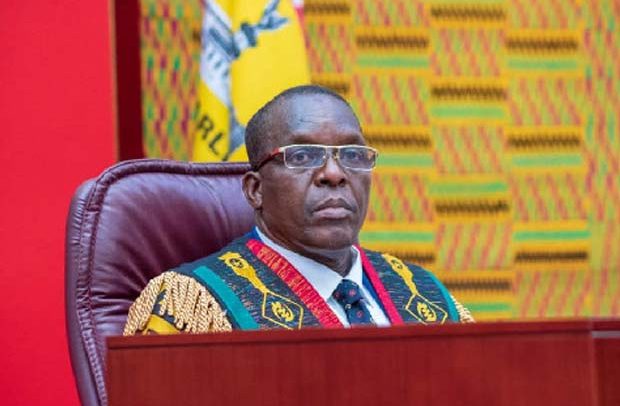Alban Bagbin
The Supreme Court last Friday set aside a decision by the Speaker of Parliament, Alban Bagbin, to declare the seats of four Members of Parliament (MPs) vacant.
This was after the court, presided over by Chief Justice Gertrude Sackey Torkornoo, granted an ex parte interlocutory injunction filed by the Majority Leader, Alexander Afenyo-Markin.
A five-member panel of the court also comprising Justices Mariama Owusu, Kwame Adibu Asiedu, Ernest Yao Gaewu, and Yaw Darko Asare, said the Speaker’s decision deprived the four constituencies the right to be represented in Parliament.
The joy of the Minority National Democratic Congress (NDC) MPs was short-lived as they claimed to hold the majority in Parliament following the declaration by the Speaker, which sparked controversy.
Speaker’s Decision
The Speaker of Parliament on Thursday, October 17, 2024, declared the seats of four Members of Parliament vacant following a motion filed by former Minority Leader, Haruna Iddrisu on ground that they were no longer members of the political parties on which ticket they were elected.
The affected MPs include Peter Yaw Kwakye-Ackah (Amenfi Central), Andrew Asiamah Amoako (Fomena), Kwadjo Asante (Suhum), and Cynthia Mamle Morrison (Agona West).
Mr. Bagbin, in his ruling, held that the decision by the MPs to contest the December 7 election as independent candidates or on the ticket of a different political party other than the one they currently serve, contravenes Article 97 (g) and (h) of the 1992 Constitution.
He indicated that the motive and operational effect of Article 97(g) and (h) was to cure the issues of cross carpeting and defection as witnessed in previous Parliaments.
Mr. Bagbin concluded that the MPs, by their action and the Notice of Polls issued by the Electoral Commission for the December 7 election meant the MPs have vacated their seats, and subsequently went ahead to declare the seats vacant.
He added that the four MPs “cannot be allowed by law and my good self to continue to pretend to be representing people that they don’t believe in and they don’t have any loyalty for in this House any longer. The House is accordingly so informed.”
Afenyo-Markin’s Response
The Majority Leader in Parliament, Alexander Afenyo-Markin, had indicated that he had filed a suit at the Supreme Court seeking an interpretation of Article 97 of the 1992 Constitution.
He disclosed that he had attached an application for interlocutory injunction to stop the Speaker from issuing a ruling until the determination of the suit by the apex court, hence, the Speaker could not give a ruling on the motion.
Right after Mr. Bagbin’s ruling, Afenyo-Markin who temporarily became the Minority Leader, announced an indefinite boycott of parliamentary proceedings by MPs from the New Patriotic Party (NPP).
The NDC MPs, on the other hand, began issuing ultimatums, threatening to repeal acts, including the Electronic Transaction Act, known commonly as E-Levy.
SC Injunction
The Supreme Court last Friday issued a restraining order against the decision of the Speaker to declare the four seats vacant until the final determination of the suit seeking an interpretation of Article 97 of the 1992 Constitution.
The suit, filed by Mr. Afenyo-Markin, argues that the decision by the Speaker was unconstitutional.
A five-member panel of the court granted the interlocutory application and halted the execution of the Speaker’s decision.
The court’s ruling on the ex parte application said the Speaker of Parliament was aware that Bailiffs of the Supreme Court had served the current action on him through the Legal Office of Parliament.
It said the Speaker’s decision deprived the affected four constituencies of their basic democratic and constitutional right of representation in Parliament until the next Parliament by the said ruling.
“Applicant urges and we appreciate that the said ruling will also likely lead to alleged thwarting of Government business in Parliament and plunge the due management of the affairs of the country into possible disruptions,” the court stated.
The court also held that the subject matter of the suit raises real questions of constitutional interpretation and application of the most fundamental and democratic rights of Ghanaians being the right to be represented and heard in Parliament through their elected representatives.
“If this impugned order and ruling is allowed to stand, it will render the grave issues raised in the substantive action nugatory,” the court added.
BY Gibril Abdul Razak


